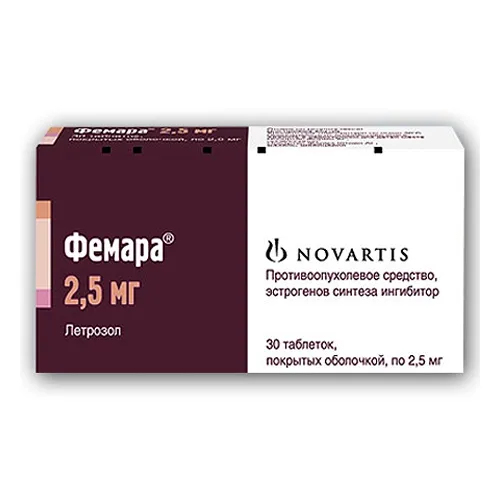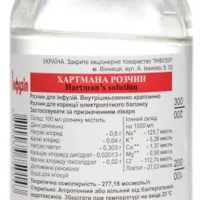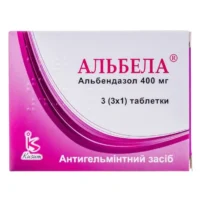Description
Femara (Letrozole) Coated Tablets 2.5 mg. №30
Ingredients:
Each coated tablet contains 2.5 mg of letrozole as the active ingredient.
Mechanism of Action:
Letrozole, the active ingredient in Femara, is a nonsteroidal aromatase inhibitor that works by decreasing estrogen production in postmenopausal women. By inhibiting aromatase, letrozole reduces the conversion of androgens to estrogens, thereby suppressing estrogen levels in the body.
Pharmacological Properties:
Femara (letrozole) exhibits selective and reversible inhibition of aromatase enzyme activity. It specifically inhibits the aromatization of androgens and reduces circulating estrogen levels, which is beneficial in the treatment of hormone receptor-positive breast cancer.
Indications for Use:
Femara (letrozole) is indicated for the treatment of hormone receptor-positive breast cancer in postmenopausal women as adjuvant therapy or extended adjuvant treatment.
Contraindications:
Do not use Femara if you are pregnant, breastfeeding, or allergic to letrozole. It is contraindicated in premenopausal women and individuals with a history of hypersensitivity reactions to aromatase inhibitors.
Side Effects:
Common side effects of Femara may include hot flashes, fatigue, nausea, musculoskeletal pain, and headache. Rare but serious side effects can include osteoporosis, bone fractures, and cardiovascular events. Contact your healthcare provider if you experience any adverse reactions.
Usage Instructions:
The recommended dose of Femara is one 2.5 mg tablet taken orally once daily, with or without food. Follow your healthcare provider’s instructions carefully and do not adjust the dosage without medical supervision.
Benefits Compared to Analogues:
Compared to other aromatase inhibitors, Femara has shown superior efficacy in terms of disease-free survival and overall survival rates in postmenopausal women with hormone receptor-positive breast cancer. Its potent and selective action on aromatase makes it a preferred choice for adjuvant therapy.
Suitable Patient Groups:
Femara is suitable for postmenopausal women with hormone receptor-positive breast cancer. It is not recommended for use in men, premenopausal women, or individuals with certain medical conditions. Consult your healthcare provider for personalized treatment recommendations.
Storage Conditions and Shelf Life:
Store Femara tablets at room temperature, away from moisture and heat. Keep the medication in its original packaging to protect it from light. Check the expiration date on the packaging and do not use expired tablets.
Packaging Description:
Femara comes in blister packs containing 30 coated tablets of 2.5 mg strength each. The packaging is designed to ensure the integrity and stability of the tablets during storage and transportation.
Clinical Evidence and Proven Effectiveness:
Femara (letrozole) has demonstrated significant efficacy in clinical trials for the treatment of hormone receptor-positive breast cancer. Studies have shown that letrozole effectively reduces the risk of disease recurrence and improves overall survival outcomes in postmenopausal women. Clinical data supports the use of Femara as a valuable adjuvant therapy option.





